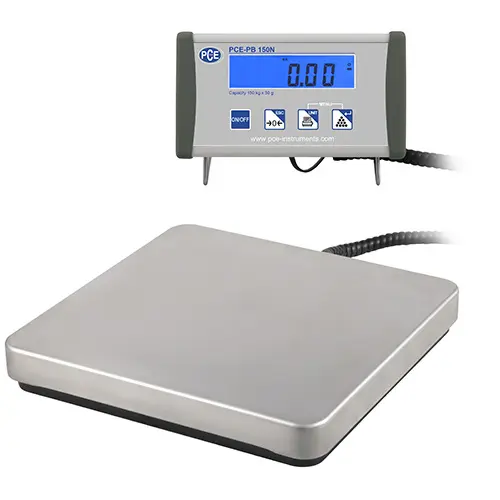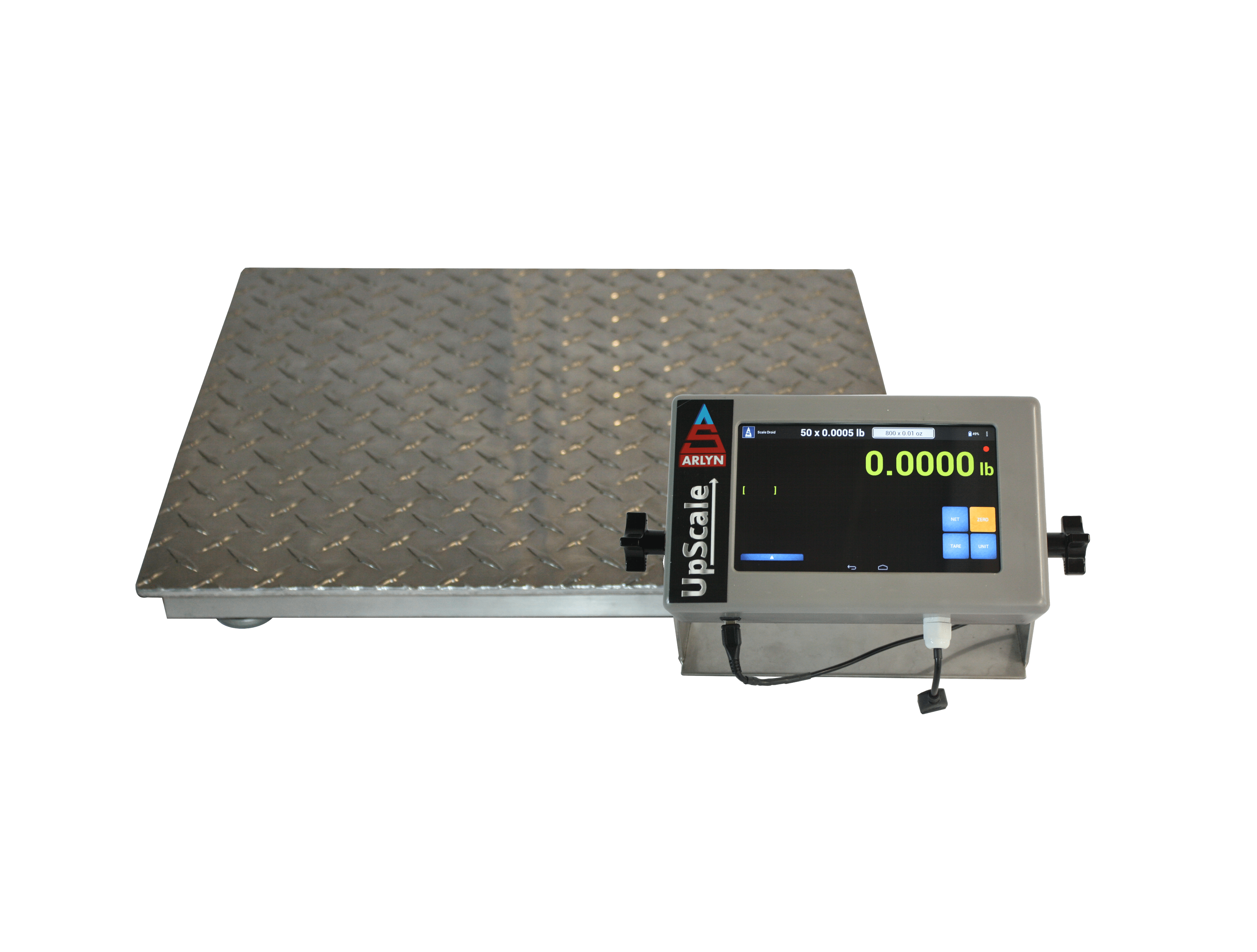The Duty of Industrial Scales in Quality Assurance and Assurance
The Duty of Industrial Scales in Quality Assurance and Assurance
Blog Article
Just How Industrial Scales Improve Precision in Manufacturing and Logistics
By guaranteeing that materials are weighed properly, companies can minimize mistakes that could lead to significant economic consequences. The introduction of advanced technologies in considering systems is changing standard processes.
Relevance of Accuracy in Operations
In the world of manufacturing and logistics, accuracy is the cornerstone of functional effectiveness. Accurate dimensions are necessary for preserving quality control, maximizing source allowance, and guaranteeing conformity with industry criteria. When operations depend on accurate information, companies can decrease waste, enhance manufacturing timelines, and improve total efficiency.
The significance of accuracy prolongs past straightforward measurement; it additionally influences decision-making processes. For example, accurate weight analyses can figure out ideal stock degrees, streamline supply chain logistics, and assist in accurate invoicing. In addition, inaccuracies in measurements can cause pricey errors, such as overproduction or underestimating material requirements, which can jeopardize project timelines and earnings.
Moreover, precision in operations promotes a society of liability and quality control. By implementing rigorous measurement requirements, organizations can recognize ineffectiveness and enact renovations, ultimately resulting in enhanced consumer satisfaction. In an era where competition is intense, the capability to provide services and products with precision can be a distinguishing factor that sets a company apart. Thus, purchasing precision measurement tools, such as commercial ranges, is not simply a technological factor to consider however a calculated vital for success in the manufacturing and logistics sectors.
Sorts Of Industrial Scales
Various sorts of industrial ranges play an essential duty in attaining the precision necessary for reliable manufacturing and logistics operations. Each kind is developed to fulfill certain requirements, making certain precise measurement of items, materials, and components.
One common type is the platform scale, which supplies a level surface area for weighing big products or bulk products. Another type is the bench scale, normally smaller sized and used for weighing private plans or smaller batches of products.
For applications where precision is important, logical equilibriums are used. These high-accuracy scales are made use of in laboratories and research study settings to determine little amounts with utmost accuracy. Flooring scales, created for sturdy considering, are excellent for weighing large pallets or containers, often integrated with forklifts for efficiency.
Additionally, load cells are utilized in different applications for real-time weight measurement and data collection. Each of these ranges adds uniquely to the operational efficiency, making certain that organizations can maintain accuracy throughout their production and logistics procedures. Understanding the types of industrial ranges is important for maximizing performance and accomplishing functional excellence.

Impact on Supply Administration
Exact weighing is important for efficient supply administration, as it directly affects supply accuracy and functional effectiveness. In production and logistics, specific dimension of products and materials guarantees that stock documents mirror actual stock levels, lowering discrepancies that can result in overstocking or stockouts. Industrial scales offer the needed precision to weigh items properly, enabling companies to preserve a trusted supply system.
In addition, exact considering adds to better forecasting and preparation. With specific information on stock levels, organizations can make informed decisions concerning procurement and production timetables. This lowers the threat of excess stock, which can connect up capital and rise storage costs, as well as protect against scarcities that may disrupt procedures.
In addition, the combination of commercial ranges with inventory management systems promotes real-time monitoring of stock activities. This enhances the process of upgrading inventory documents, improving transparency and liability throughout the supply chain. Eventually, accurate considering not only supports effective supply administration yet additionally drives general functional effectiveness, enabling services to react quickly have a peek here to market needs and preserve an one-upmanship in their respective markets.
Enhancing Quality Assurance
Efficient stock management not just ensures optimum stock degrees yet likewise lays the foundation for robust quality assurance processes. Industrial scales play a crucial role in improving quality control by providing exact weight dimensions that are essential for preserving item integrity. Consistent weight confirmation enables makers to abide by specs, making certain that each item satisfies the needed top quality standards.
In high-stakes atmospheres, such as food manufacturing or drugs, even minor weight inconsistencies can bring about significant compliance issues. By incorporating commercial ranges right into the production line, companies can keep an eye on item weights in actual time, permitting immediate restorative activities if abnormalities are discovered. This aggressive approach reduces waste and improves total item reliability.
Moreover, accurate weighing helps with much better formula of raw products, which is crucial in industries like chemicals and cosmetics. By making sure that component ratios stay constant, producers can accomplish premium item high quality, improving client fulfillment and decreasing returns.
Future Patterns in Weighing Technology
The future of evaluating innovation is poised for significant innovations driven by automation, connection, and information analytics. As markets evolve, the integration of advanced sensors and IoT (Net of Points) abilities will make it possible for real-time surveillance and reporting of weight data. This connection will certainly not just enhance functional effectiveness but also promote predictive maintenance, minimizing downtime and improving productivity.
Additionally, the incorporation of expert system and machine understanding algorithms into evaluating systems will improve information analysis capabilities. These modern technologies can determine patterns and anomalies, go now enabling even more informed decision-making and optimized supply chain monitoring. In addition, the increase of cloud-based solutions will enable seamless information sharing throughout platforms, guaranteeing that stakeholders have accessibility to up-to-date info at all times.
Sustainability will likewise play an essential role in future weighing modern technology. As services aim to lessen their carbon footprint, weighing systems that integrate energy-efficient designs and materials will certainly become significantly crucial. In addition, advancements in electronic evaluating scales will sustain better resource monitoring by providing specific dimensions that minimize waste.
Final Thought
Finally, industrial scales substantially enhance accuracy in manufacturing and logistics by offering specific weight measurements crucial for reliable operations. Their role in stock management, top quality control, and assimilation with innovative innovations highlights their value in enhancing and read here minimizing disparities source appropriation. As markets remain to evolve, the adoption of innovative considering options will better sustain operational efficiency and minimize waste, ultimately adding to improved efficiency and competitiveness on the market.
One common type is the platform range, which supplies a level surface for considering large products or bulk products. One more kind is the bench scale, normally smaller sized and used for evaluating specific packages or smaller sets of items. Flooring scales, developed for heavy-duty weighing, are excellent for weighing huge pallets or containers, usually incorporated with forklifts for efficiency.
Industrial ranges offer the required precision to evaluate items precisely, enabling companies to keep a trusted inventory system.

Report this page